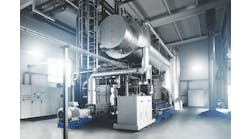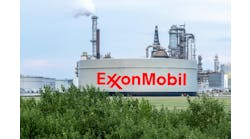Effective energy conservation requires an all-around awareness of the plant from plant personnel. Awareness begins from a self-assessment focused on areas that impact the energy cost of the plant.
[pullquote]Part I focused on the process operations, storage and handling areas of a plant. Here, we discuss self-assessment checklists covering utilities, measurement and control procedures that impact energy use.
Checklist for Boilers and Heaters
• Are operators trained to efficiently operate heaters and boilers?
• Is excess air kept at the furnace outlet at minimum with no smoke formation?
• Have furnace boxes been checked for false air leaks?
• Are large boilers and heaters (>25MM Btu/hr) equipped with online oxygen analyzers and monitored continuously?
• Are all draft gauges in the furnace section operating satisfactorily?
• Are burners of efficient type, do they have a good flame pattern and are they properly balanced and maintained?
• Is the atomized steam in liquid fuel burners sufficiently super-heated?
• Are radiant and convection tubes clean?
• Have boilers and heaters been evaluated for additional heat recovery, possibly by adding either an economizer or combustion air preheater?
• If heat recovery within the boiler/heater isn't possible, can a nearby process stream recover the wasted heat from the stack for hot water generation?
• If the boiler or heater is fired with liquid fuels, are soot blowers installed and operating properly?
Checklist for Steam Systems
• Is boiler blowdown under strict control and set at minimum allowable levels?
• Is steam system pressure maintained at the minimum levels?
• Are all steam traps periodically surveyed and are all defective traps replaced?
• Are steam leaks repaired quickly? Are threaded piping connections still in use?
• When steam turbines are available in the plant, is the steam system kept in balance without low-pressure steam venting and without too much steam passing through let-down valves?
• Have obsolete steam supply lines been removed or isolated with blinds to minimize steam distribution losses?
• Do steam let-down valves give a positive shut-off when closed?
• Is condensate recovered and reused to the extent possible?
• Has the plant investigated replacing several less-efficient single-stage turbine drives with a large efficient multi-stage turbine drive with less overall maintenance cost?
• Can hot process or hot water streams be used to replace the steam tracing?
• Can steam drum internals be improved to reduce blowdown?
• Can tank-heating steam be replaced with exhaust steam, condensate or other low-level heat sources along with tank insulation?
• Are there long steam lines to distant services? If so, consider converting the steam user or providing a small local boiler that starts and stops automatically instead of maintaining the long steam supply lines.
• Have all steam piping systems been reviewed for possible replacement of underground lines and lines passing through low water-accumulating zones?
• Has both shell and roof insulation for all heated tanks been considered?
• Has the performance of large turbines been tested recently?
• Has the vacuum of surface condensers been monitored continuously and optimum vacuum level for maintenance stoppage been considered?
• Have replacement of turbine drives with electric motors been considered if low-pressure steam venting is a chronic problem?
• Has the cost of returning steam condensate recently been examined? Have savings in treated water cost and wastewater disposal costs been included along with the fuel savings cost?
• To what extent are operators aware of the cost of steam and the losses involved?
This listing, of course, doesn't cover every question that may be sensible for your site. As stated in last month's column, the initial questions may generate further questions, but exploring further would lead not only to an in-depth self-assessment but also to the appropriate solutions. These checklists also help prioritize the required actions. In summary, plant engineers would greatly benefit by using self-assessment checklists.
VEN V. VENKATESAN is Chemical Processing's Energy Columnist. You can e-mail him at [email protected]


